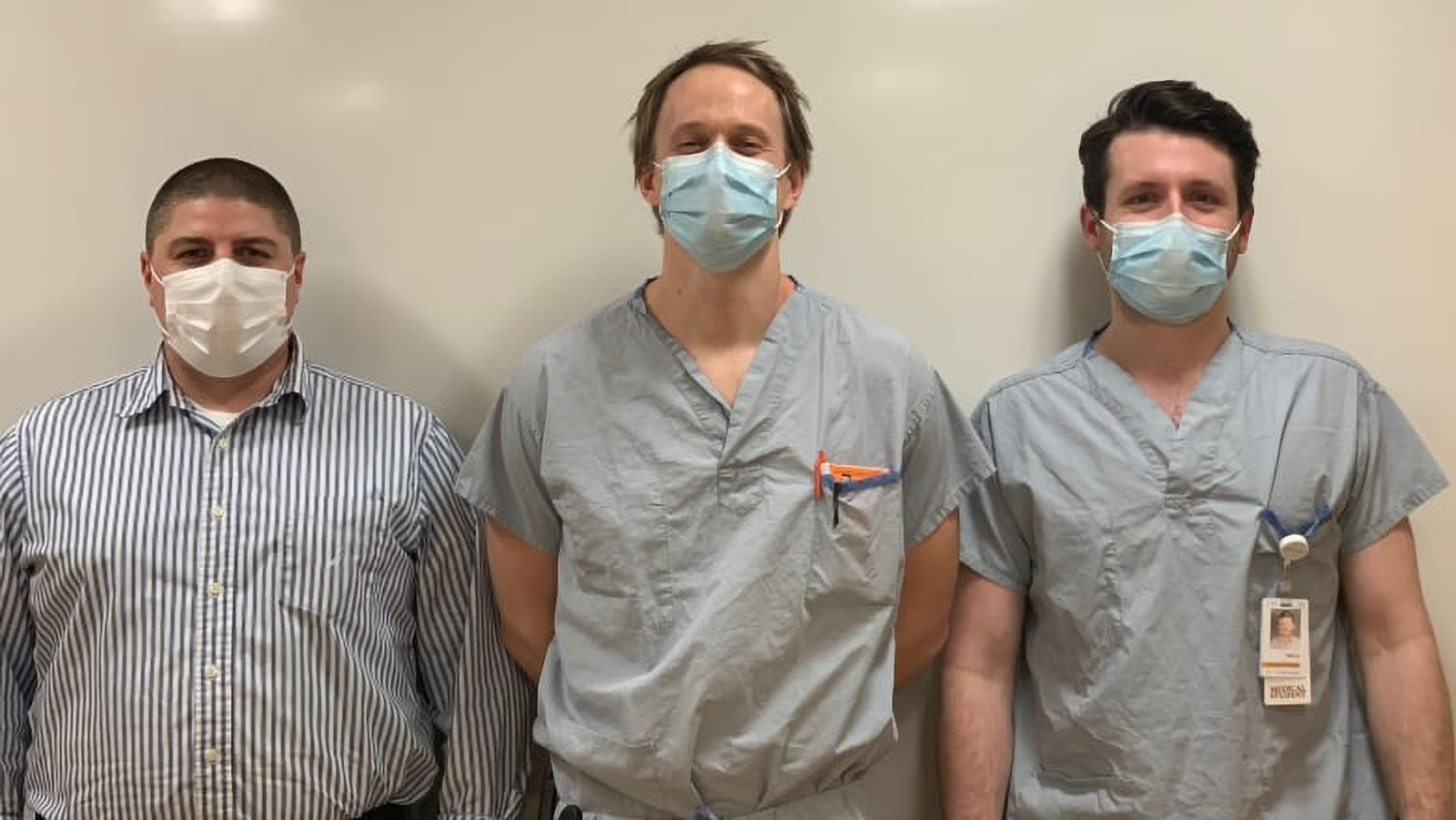Innovation in times of crisis
Faculty created curriculum that challenges students to advocate for impactful change

As the world faced the unprecedented health crisis of COVID-19, faculty at the Northern Ontario School of Medicine made pivotal changes to its fourth-year MD curriculum. At a time when students were not able to work on the frontlines, NOSM faculty worked quickly to introduce a new curriculum that focused on building advocacy leadership skills that would lead to impactful change.
“The new curriculum provided students with the opportunity to pursue topics that matter to them while having real, positive impacts on patient care and population health in Northern and rural contexts,” says Dr. Erin Cameron, NOSM Assistant Professor. “Much about medicine is learning how to advocate for individual patients or advocating for change at the institutional and community levels.”
The new curriculum was broken into parts: academic sessions related to the pandemic; Research and Advocacy Pandemic (RAP) Rounds, a forum for discussing emerging evidence, clinical practices, and public health strategies around COVID-19; and, the Northern and Rural Health Advocacy Projects, where students identified an issue and undertook an advocacy project to address the issue.
“The idea was to learn from and through the pandemic in real-time, with a focus on our Northern Ontario setting. As a socially accountable medical school, this new addition to the curriculum provides students with more opportunity to be health advocates. It was a team effort and is something we will continue for years to come.”
Dr. Erin Cameron

Advocacy Projects
Naloxone North
As the opioid death rate continues to rise in Northern Ontario, fourth-year medical students at NOSM created an innovative app that improves access to Naloxone, a drug used to counter the effects of opioid overdose.
Jordan Law, MacKenzie Ludgate and Owen Montpellier developed the Naloxone North app, a free and confidential service that ships a Naloxone kit right to your door. The Naloxone North app includes educational information about the drug as well as a detailed instructional video and approved information about the safe administration of Naloxone.
“This app offers privacy and access to people who want to have a Naloxone kit on-hand, but who are uncomfortable facing the stigma or fear associated with asking for one in person at a pharmacy or clinic,” adds Owen Montpellier, another fourth-year medical student who worked on the app.
“The Naloxone North app also provides improved access for those living in remote, isolated or rural communities in Northern Ontario,” says Jordan Law, another fourth-year medical student and pharmacist who worked on the app. “As long as you have an Ontario Health card, you can order the kit through the app and request that it be shipped to your preferred location.”
The students followed the guidelines of the Ontario Ministry of Health’s Naloxone Program to meet the applicable policy requirements for safe Naloxone administration, education and distribution. The app has also been translated into French and Cree, says Dr. Marion Maar, Associate Professor of Medical Anthropology and faculty advisor on the project.
A NOSM research team has received funding from the Canadian Institutes of Health Research (CIHR) to study recovery in the opioid crisis in Northern Ontario. They will leverage their work to support ongoing development of the Naloxone North app and study its uptake in rural, Francophone and Indigenous communities.
The research is being conducted in collaboration with First Nations and led by Drs. Marion Maar, Darrel Manitowabi, Lorrilee McGregor, and Diana Urajnik, in partnership with the medical students. The medical students would like to thank Dr. Nicholas Fortino, emergency physician at Health Sciences North, for his guidance with the app.
“The app provides a simultaneous opportunity to conduct research that will determine whether it is an effective way to support opioid recovery in Northern Ontario. I’m proud of the innovative ideas that NOSM students have implemented to address some of the longstanding issues in our region. During a difficult time of change, they embraced a new curriculum and are indeed making an impact.”
Dr. Marion Maar
Project Connect
Another recent project with a positive impact is Project Connect. A group of students collected gently used cell phones to be repurposed and given to survivors of intimate partner violence.
Rebecca Bourdon, a fourth-year NOSM medical student, spearheaded the local Project Connect effort. She says the new curriculum made a lasting impact on her. “As future health-care providers, it is important to remain vigilant in observing, and active in addressing, any gaps in healthcare as they occur, especially those that affect unfairly disadvantaged and vulnerable groups who may be unable to adequately advocate for themselves.”
The goal of the advocacy projects is to complement the existing curriculum of the NOSM MD program, which is a mandatory academic requirement for the Northern and Rural Health course and Social and Population Health course. Other fourth-year medical student projects include new apps, educational infographics for patient education, advocacy letters to Ministers and Members of Parliament and action plans to support mental health.
The pandemic provides a rich teaching and learning environment that is ever evolving,” says Dr. Cameron. “Students received academic credit for undertaking the advocacy activities and making a difference in Northern Ontario.”

“The advocacy curriculum allowed us to uncover disparities in public health, particularly those either created or compounded by the pandemic. It gave us the opportunity to leverage our position to support and lobby for ways to address these inequities. This invaluable experience has ingrained in me the importance of being a health-care advocate, a role l will continuously strive to assume as a future physician.”
Rebecca Bourdon
Read more articles on some of NOSM’s many advocacy projects:
- Northern medical school reacts to pandemic with community advocacy projects
- NOSM students launch app to help people obtain naloxone and train them to administer it
- Naloxone North : nouvelle application pour aider dans la crise des opioïdes
- Innovation in times of crisis: How NOSM faculty created curriculum that challenges students to advocate for impactful change
- Innovative app created by NOSM medical students aims to reduce opioid-related deaths
- NOSM med students start sustainable menstrual-care products campaign for Fort Severn

